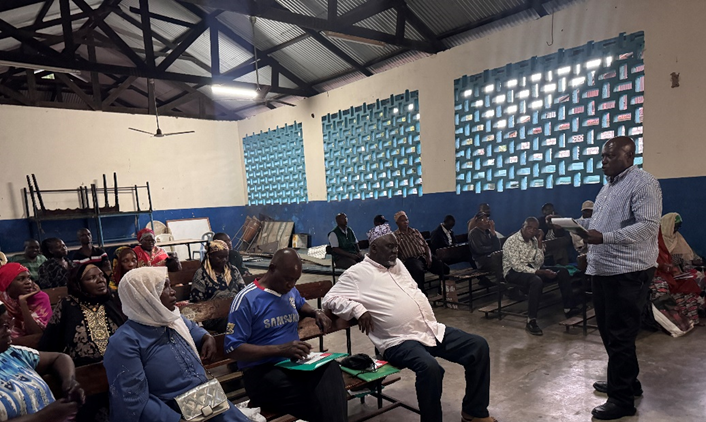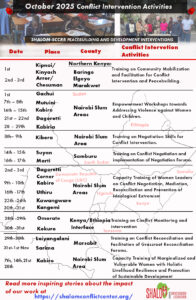The coast of Kenya; particularly Timbwani ward in the South Coast is gradually becoming another Shalom-SCCRR success story concerning its conflict transformation, peacebuilding and infrastructural development interventions. This is the most populated administrative ward in Kenya, according to the Kenya National Bureau of Statistics (2019). Timbwani hosts people who have their roots from nearly all the ethnic groups of Kenya; a situation that makes it a micro-representation of many conflict dynamics that Kenya faces. Through observation and critical analysis of data that have constantly emerged through the interactive sessions between Shalom’s project team and the communities, Shalom-SCCRR can confidently highlight religious ideological intolerance, historical land tenure insecurity, negative ethnicity, and marginalization, particularly evident in issues of human security, as the main conflict-generating factors that prevent the socio-political and economic well-being of residents in Timbwani.
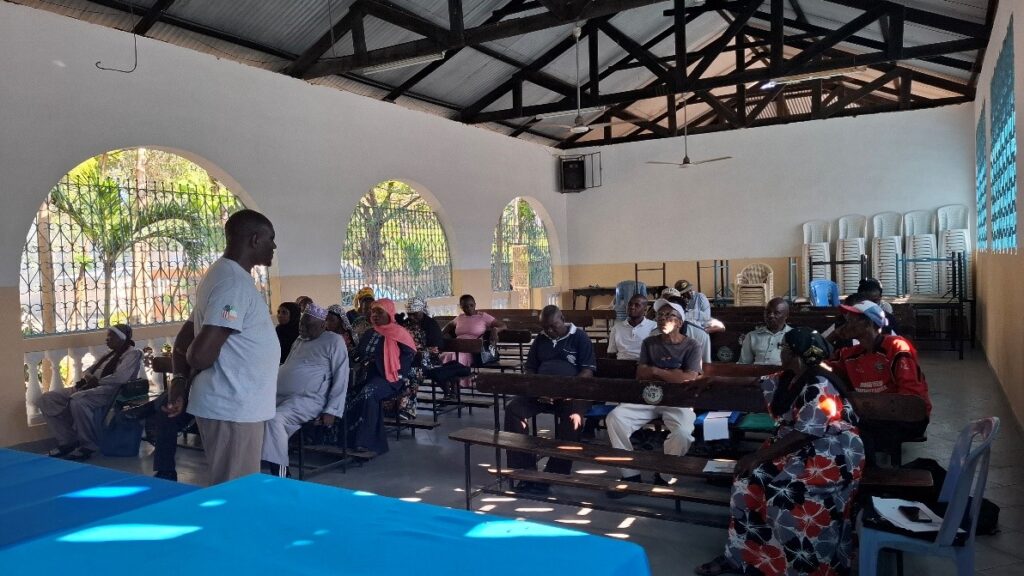
The past two years have been instrumental for Shalom SCCRR and the people of Timbwani in shaping a unique conflict response infrastructure that brings together key influential opinion shapers and community members who are the real face of Kenya’s multiple identities and have been trusted as part of the project, courtesy of their experiential capacity to tackle these deep-rooted and extremely divisive conflict issues. Timbwani has suffered some of the worst ethno-political violence in Kenya’s history, epitomised by killing, maiming, and displacements. By incorporating both Christians and Muslims into the project’s framework, the intervention has demonstrated its critical focus on religion not only as one of the platforms through which intergroup divisions manifest but also as a means of peacebuilding.
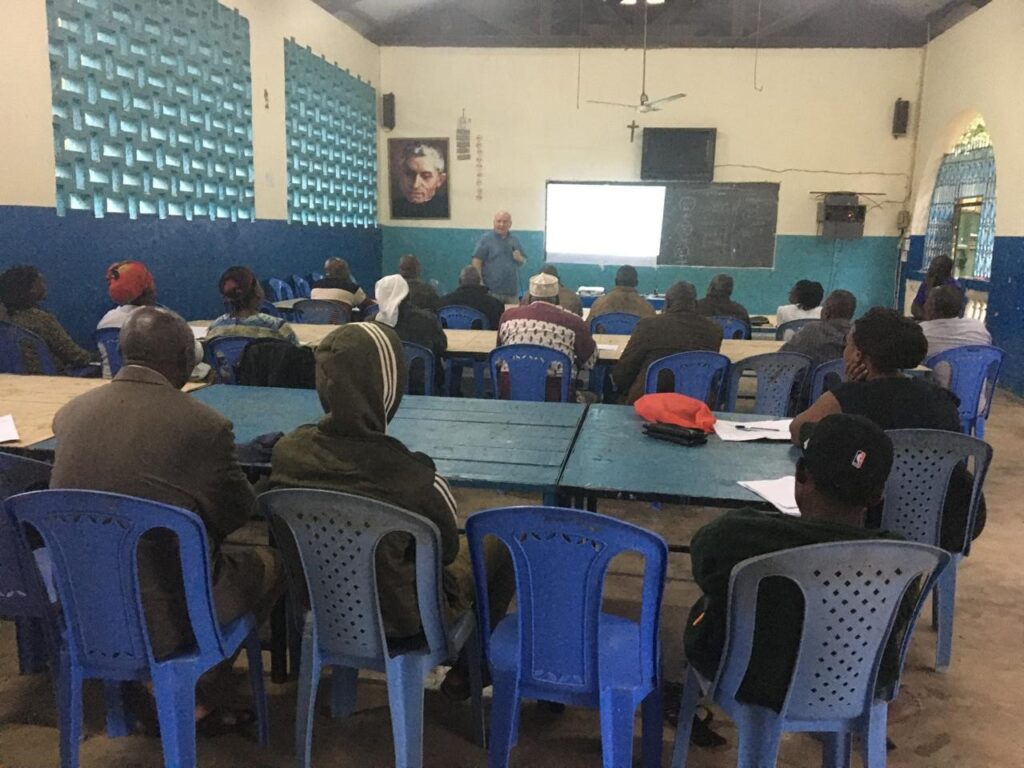
Shalom SCCRR’s team of professional peacebuilding practitioners, supported and guided by Rev. Dr. Patrick Devine, PhD, and Rev. Dr. Oliver Noonan, have constantly been on the ground, strengthening the conflict transformation and peacebuilding knowledge and skills of the opinion shapers. These interventions entail building an institutional framework made up of locals which can non-violently challenge the structures that entrench and exacerbate extreme violence.

Founded on the principles of inclusivity, justice, and community empowerment, Shalom-SCCRR has made use of longitudinal action research, conflict transformation and peacebuilding training, and reconciliation activities to bolster the community’s understanding and capacities in addressing the root causes of violent conflict in Timbwani ward. In addition to conducting well-contextualized trainings on Paradigms of Conflict Analysis, Conflict Transformation, Conflict Negotiation and Reconciliation over the past 2 years, the participatory workshops have empowered the community influential opinion shapers (interreligious leaders, village elders, young people, women, and local government leaders), by enabling them to make use of local leadership structures to work jointly towards restoring relationships once broken by past wounds inflicted by devestating conflict and violent extremism.
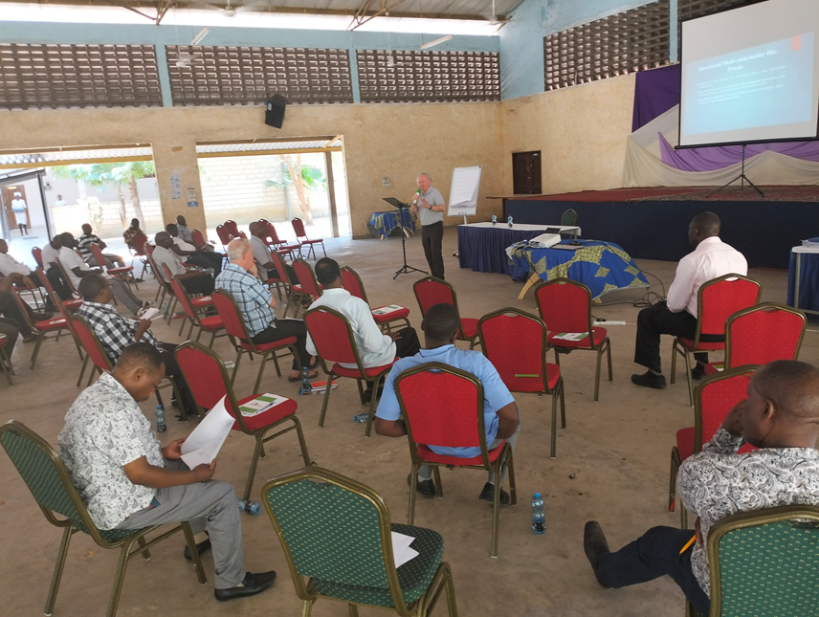
In communities shaped by painful violent conflict memories made more complex by modern-day challenges, ranging from ethnic tensions to radicalization and violent extremism, reconciliation is the ultimate necessity that is essential for community members to restore the lost mutual concern for the well-being and mutual development of each other. Shalom-SCCRR workshops intervene comprehensively into the broader project goal of rebuilding broken trust and addressing narratives of exclusion. This involves building and supporting inter-ethnic and inter-religious schools through school/educational development interventions, and capacity-building local peace actors to understand and challenge the drivers of violent extremism through constructive communication, mutual understanding, and the healing of past traumas inflicted by injurious conflicts.
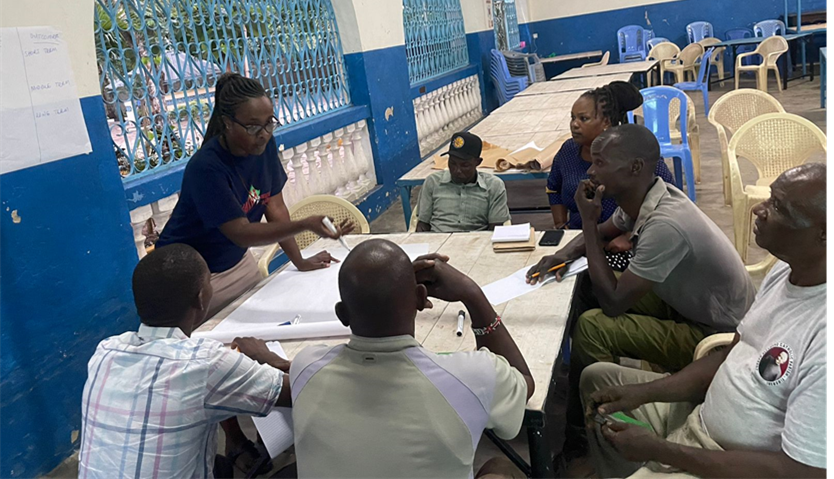
Through their expertise, the project team has engaged deeply with community influentials, carefully and empathetically listening to their experiences, aspirations, and exploring with them how the fractured relationships and unresolved trauma have exacerbated radical ideologies which are now deeply moored in the cultures and communities’ mode of operation. A key lesson learnt through this interaction is that reconciliation in such a context means more than forgiveness; it means confronting injustice, restoring human dignity, and actively rebuilding the social fabric that has been torn by fear, suspicion, and marginalization.

Throughout the period that the project has been in existence, what stood out most was the resilience of the people of Timbwani—their desire for peace, their openness to difficult conversations, and their hope for a future defined not by division but by inter-dependent, harmonious co-existence.
The impacts of this intervention are already becoming evident. Qualitatively, participants continue demonstrating a renewed sense of collective responsibility and hope. Community leaders have always expressed how the Shalom-SCCRR trainings have equipped them with practical tools to negotiate and mediate conflicts, initiate open, authentic dialogue, and involve previously excluded voices, especially women and youth. Stories of restored relationships and new collaborative efforts between religious leaders and local government officials have begun emerging—signaling a shift in how communities are choosing to confront their challenges together. A notable transformation was the spontaneous formation of a local peace circle by workshop participants, which now meets weekly to further healing conversations and address emerging community tensions.
“For the first time, I feel like my voice is stronger in building peace here. Peace begins with me personally, and therefore, I have to change myself first before I can change others. Shalom trainings have given us the tools and courage to talk across differences and start healing.” Mr Kassim, Village elder, Eastern Zone, Timbwani
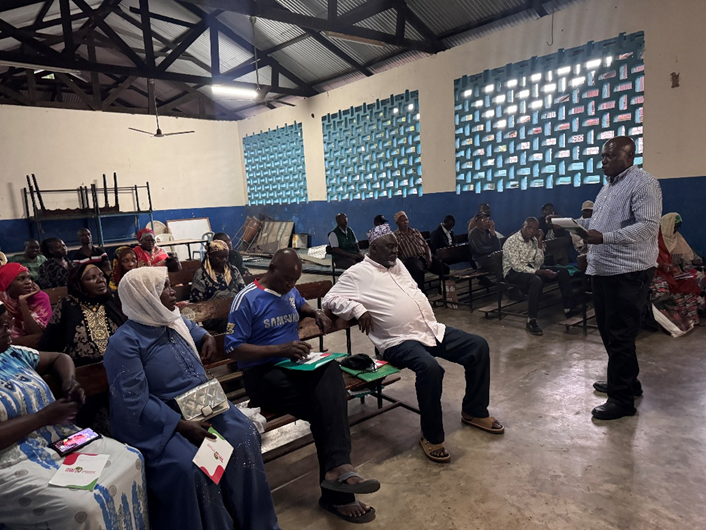
Through the Project’s direct beneficiaries who cut across religious, ethnic, gender, and generational lines, the project is broadening its outreach to the grassroots members of the community. The Shalom-SCCRR-trained participants conduct further training to community groups and lead conflict mediation and reconciliation efforts. This indicates a multiplying effect that aligns with Shalom-SCCRR’s goal of building grassroots peace infrastructures capable of sustaining long-term social reconciliation and cohesion.

The resilience and the initiative of the Timbwani community is a testimony that true peace is not imposed. Rather, it is built from within, nurtured through relationships, and sustained by justice. Shalom-SCCRR and the community of Timbwani remain motivated by every voice, every positive story, every peacebuilding infrastructure for conflict intervention, and every step taken together, striving for positive peace.
As Timbwani takes these steps toward healing, Shalom-SCCRR remains committed to walking with the communities, offering continued support, mentorship, and platforms for settling and resolving their conflict issues. The road to peace is long, but each milestone strengthens the belief that empowered communities can be the architects of their own transformation. Thanks to all our donors for making this possible; you are making lasting impacts that are much appreciated by the people most affected. They know that they are not forgotten or abandoned.
Authors:
Ms. Habiba Abdi, MA Candidate
Mr. Godfrey Okoth, MA, PhD Candidate
Ms. Esther Kibe, MA, Shalom-SCCRR Communications Department
RELEVANT LINKS
- Devine, P. R. (2025). “Conflict and Religion in Eastern Africa: A Conceptual Consideration of Radicalisation, Fundamentalism, Extremism, Terrorism, Tolerance, and Their Interaction Dynamics”, published in the 2025 Tangaza Journal of Theology & Mission (2024/1-2).https://shalomconflictcenter.org/wp-content/uploads/2025/07/Patrick-Devine-Tangaza-Journal-Conflict-and-Religion-in-Eastern-Africa-Jun-2025.pdf
- Shalom-SCCRR. (2025, June 4). Shalom-SCCRR 15 Years Results and Achievements. https://shalomconflictcenter.org/shalom-sccrr-15-years-results-and-achievements/
- Devine, P. R. (2017). “Radicalization and Extremism in Eastern Africa; Dynamics and Drivers”, published in the Journal of Mediation and Applied Conflict Analysis, 4 (2).http://mural.maynoothuniversity.ie/9086/7/PD-Radicalisation-2017.pdf
- Okoth G., (2024). Shalom-SCCRR’s Transformative Approach to Manifest and Structural Violence Takes Root on the Kenyan Coast. https://shalomconflictcenter.org/shalom-sccrrs-transformative-approach-to-manifest-and-structural-violence-takes-root-in-the-kenyan-coast/
- Okoth, G. (2022). Shalom-SCCRR mobilizes intervention towards de-radicalization and Counter-Violence Extremism on the Kenyan Coast. https://shalomconflictcenter.org/shalom-sccrr-mobilizes-intervention-towards-de-radicalization-and-counter-violence-extremism-on-the-kenyan-coast/
- Okoth, G. & Mwangi, F. (2022). Shalom-SCCRR Facilitates at AMECEA Forum on Addressing Religious Ideological Extremism in Eastern Africa. https://shalomconflictcenter.org/shalom-sccrr-facilitates-amecea-forum-on-addressing-religious-ideological-extremism-in-eastern-africa/
- Lugonzo, F. (2018). Conflict transformation, Radicalization and Extremism in Eastern Africa’https://shalomconflictcenter.org/conflict-transformation-radicalization-and-extremism-in-eastern-africa
- Devine, P. (2025, April 2025). Shalom-SCCRR Chairman’s Report for 2024; Rev. Dr. Patrick Devine. https://shalomconflictcenter.org/shalom-sccrr-chairmans-report-for-2024-rev-dr-patrick-devine/
- Erot, P, Kibe, E, & Awed, S. (2019). Shalom-SCCRR deliberates on its interventions to counter and transform radicalization and extremism in Eastern Africa.https://shalomconflictcenter.org/shalom-sccrr-deliberates-on-its-interventions-to-counter-and-transform-radicalisation-and-extremism-in-eastern-africa/
- Shalom-SCCRR. (2015). Shalom Center Stands with the Kenyan People and the Path To Peace https://shalomconflictcenter.org/shalom-center-stands-with-kenya-and-the-path-to-peace/
- Devine, P. R. (2011). A Critical Analysis of The Role of Religion in Fuelling and Healing Conflict. Tangaza Journal of Mission Theology Mission, (1),52-69.https://shalomconflictcenter.org/wp-content/uploads/2025/07/A-Critical-Analysis-of-the-Role-of-Religion-in-Fueling-or-Healing-Conflict-by-Patrick-R.-Devine-2011.pdf

